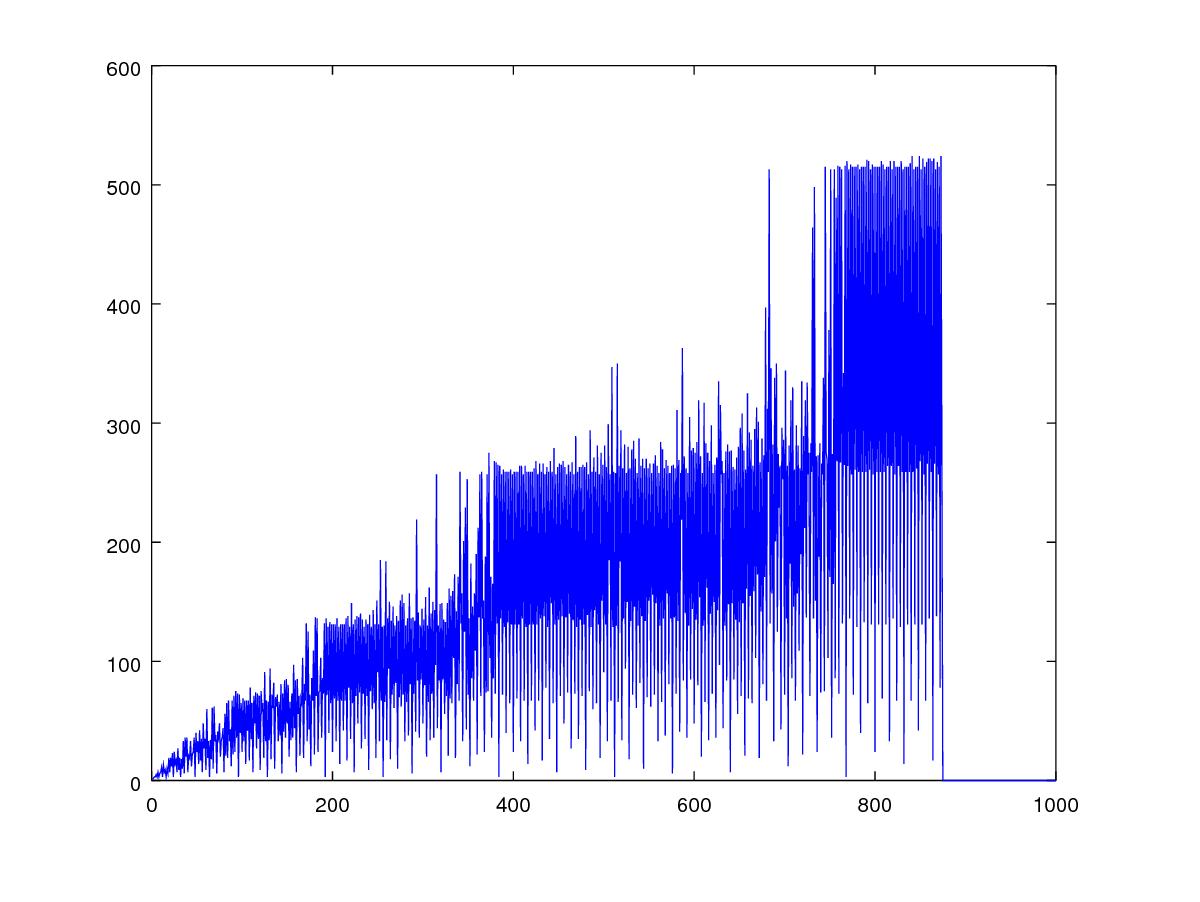Let $n$ be a positive integer. Suppose we fill a square matrix $n\times n$ row-by-row with the first $n^2$ elements of the Thue–Morse sequence (with indexes from $0$ to $n^2-1$). Let $\mathcal D_n$ be the determinant of this matrix. For example, $$\small\mathcal D_7=\left| \begin{array}{} t_0 & t_1 & t_2 & t_3 & t_4 & t_5 & t_6 \\ t_7 & t_8 & t_9 & t_{10} & t_{11} & t_{12} & t_{13} \\ t_{14} & t_{15} & t_{16} & t_{17} & t_{18} & t_{19} & t_{20} \\ t_{21} & t_{22} & t_{23} & t_{24} & t_{25} & t_{26} & t_{27} \\ t_{28} & t_{29} & t_{30} & t_{31} & t_{32} & t_{33} & t_{34} \\ t_{35} & t_{36} & t_{37} & t_{38} & t_{39} & t_{40} & t_{41} \\ t_{42} & t_{43} & t_{44} & t_{45} & t_{46} & t_{47} & t_{48} \\ \end{array} \right|=\left| \begin{array}{} 0 & 1 & 1 & 0 & 1 & 0 & 0 \\ 1 & 1 & 0 & 0 & 1 & 0 & 1 \\ 1 & 0 & 1 & 0 & 0 & 1 & 0 \\ 1 & 1 & 0 & 0 & 1 & 1 & 0 \\ 1 & 0 & 0 & 1 & 1 & 0 & 0 \\ 1 & 0 & 1 & 1 & 0 & 0 & 1 \\ 1 & 0 & 1 & 0 & 0 & 1 & 0 \\ \end{array} \right|=0.$$ Question: For which $n$ does $\mathcal D_n\ne0$ hold?
Using a brute-force computer search I found only $5$ cases: $\mathcal D_2 = -1,\,$ $\mathcal D_{11} = 9,\,$ $\mathcal D_{13} = -9,\,$ $\mathcal D_{19} = 270,\,$ $\mathcal D_{23} = -900,$ and no other cases for $n\le1940$. Are there any other cases except these five?

